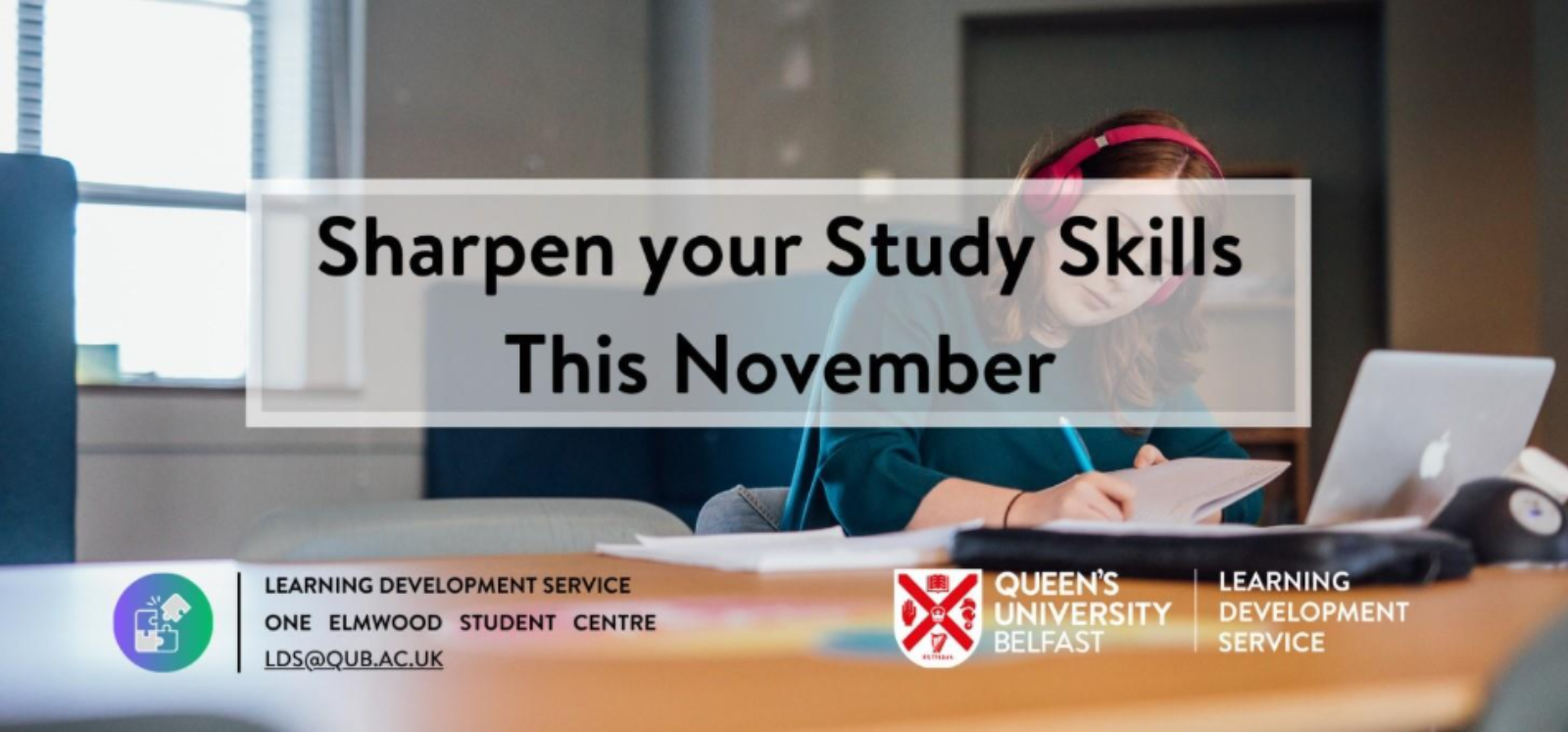Sharpen your Study Skills This November
Whether you’re settling into uni or aiming to boost your grades, November’s the perfect time to sharpen your study skills. We’re sharing practical ways to stay on top of deadlines and build a study routine that works for you.

Whether you're just settling into university life or looking to boost your academic performance, November is the perfect time to sharpen your study skills. This month, we’re focusing on practical ways to stay on top of deadlines, and create a study environment that works for you. Small changes can make a big difference!
Studying at university is all about becoming more independent, and that means finding new ways to manage your weekly reading, research, and critical thinking. If you’ve ever felt overwhelmed by how much there is to read or unsure how to get started, you’re definitely not alone!
Here are a few ideas to make things easier:
Make reading work for you.
Plan regular time each week to tackle your reading list, but don’t feel you have to read every word. Skim first to get a sense of what’s important, then go back and dig deeper where it matters most. Try out different note-taking styles or summarise key ideas in your own words to help them stick.
Think critically about what you read.
At university, it is not just about understanding what an author says, it’s about asking questions. How reliable is this source? What are its strengths and weaknesses? Why was it written, and how relevant is it to what you’re studying? Approaching your readings this way helps you build stronger arguments in essays and discussions.
Stuck on a difficult text?
Don’t panic. Start by looking at the introduction and conclusion to find the main argument. Chat with classmates or your tutor if something’s unclear, chances are others are finding it tricky too.
If motivation is low, set small goals and take breaks - progress comes bit by bit.
- Sep 2025 -1.png)
Try a SWOT approach for assignments.
Need a simple way to plan your next essay? The SWOT method can help you spot what’s going well, what needs work, and how to move forward. For example:
Strengths
-
- I have been keeping up with my readings.
- I have support from student services: such as Learning Development Service (LDS), my tutor, etc.
- I have developed strong research skills and know how to effectively use the library.
Weaknesses
-
- I have a hard time with knowing where to reference.
- I procrastinate when I have written assessments to complete.
- I have a hard time developing an argument in my written work.
Opportunities
-
- Preparing for this written assignment will help me gain new knowledge.
- I can use feedback from my prior written assessments.
- I can connect with my classmates.
Threats
-
- Managing my time efficiently.
- Potential family commitments.
- Having a part-time job and not balancing study and work.
This is a simple way to spot where you’re confident, what needs work, and how to move forward.
Remember, developing good study skills takes time, but every step you take makes university life a little smoother.
Explore the Transition Skills for University resources on Canvas, Unit 2: Developing Your Study Skills, to find more information, short videos, examples, and activities that can help you put these ideas into practice.